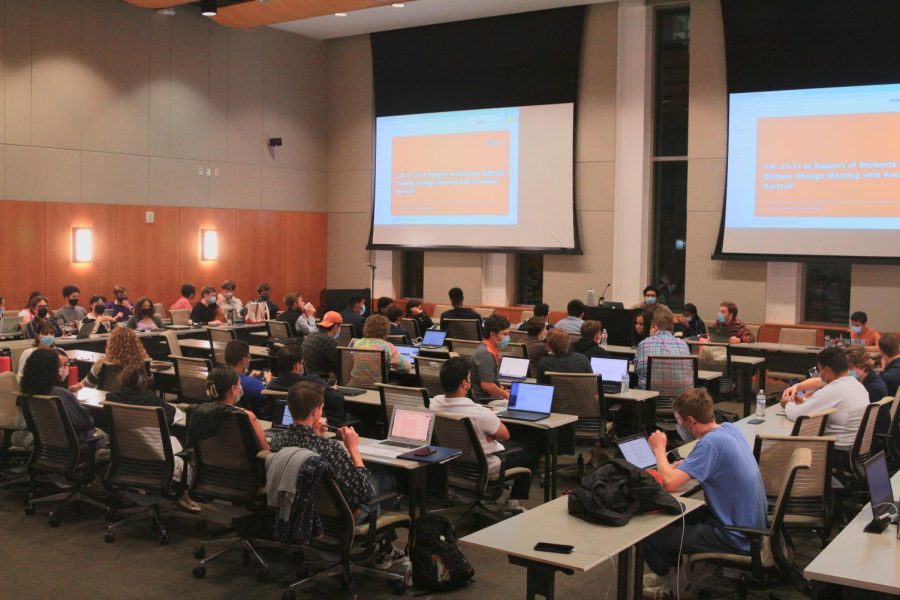Joint resolutions paused for legislative student organizations
March 25, 2022
Editor’s Note: This article was first appeared in the March 22, 2022 flipbook.
The joint resolution process for Legislative Student Organizations will pause for the rest of the semester due to procedural errors, according to a March 2 email from Dean of Students Soncia Reagins-Lilly.
According to the email, the current framework allows a joint resolution to pass if two of the three LSOs pass the resolution, meaning the Senate of College Councils and Graduate Student Assembly can pass a joint resolution without Student Government passing it. The Dean of Students office is currently working on a new framework that will be completed by fall 2022 because the current framework infringes on SG’s rights as the only LSO elected by the student body, said Sara Kennedy, director of strategic and executive communications, in an email.
Braxdon Cannon, speaker of the SG assembly, said while he could understand reform was necessary, he thought the Joint Resolution committee could have tried to solve their issues before the process was halted.
“Having great relationships between Senate and GSA is always a plus,” said Cannon, a mathematics and sustainability studies sophomore. “But when there’s a wedge driven between us (where) we can’t collaborate in that way, it’s a little bit scary.”
Last semester, a joint resolution in support of divestment from weapons and weapon system manufacturing companies failed to pass in SG, but was approved in the GSA and Senate. Cannon said most joint resolutions are agreed upon by all three LSOs.
“Usually JRs, by the time they hit the floor, are unanimous, they’re great causes, (so) why wouldn’t you support them?” Cannon said.
GSA president Alex Sexton said previously GSA and Senate dealt with issues regarding student affairs, which are outside of their jurisdiction. Because of this, he said the Dean of Students office was justified in their actions, although he said the decision gives more authority to SG.
“Essentially, the president of Student Government can now overrule me,” said Sexton, a social work graduate student. “At the core of this is the marginalization of Senate and GSA in favor of Student Government.”
Undergraduate student representative Eva Kahn said SG should have more of a say because they were elected by the student body. She said a framework in which SG and one other LSO have to approve the joint resolution would make sense.
“To say all three or at least two of the three agree on something is to make a powerful statement,” humanities junior Kahn said. “If they put in something in which Student Government assembly plays a greater role in whether things pass, then that would show that they’re putting the ability back into our hands.”
Cannon said although Joint Resolutions are paused, each LSO can pass the same resolution individually. Sexton said it will be harder for the Dean of Students office to stop individual resolutions in this manner.
“It also gives us a little bit more wiggle room because it can’t be as easily killed as it was before,” Sexton said.
Sexton said because the new student leadership has experience with the LSOs, there will likely be fewer procedural issues that will need intervention from the Dean of Students office.
“I’m really optimistic about what (the leadership is) going to do,” Sexton said. “I think things are going to be a lot more rulebook to a positive degree.”
Editor’s note: This story has been updated to state that Alex Sexton is president of the Graduate Student Assembly. The Texan regrets this error.












